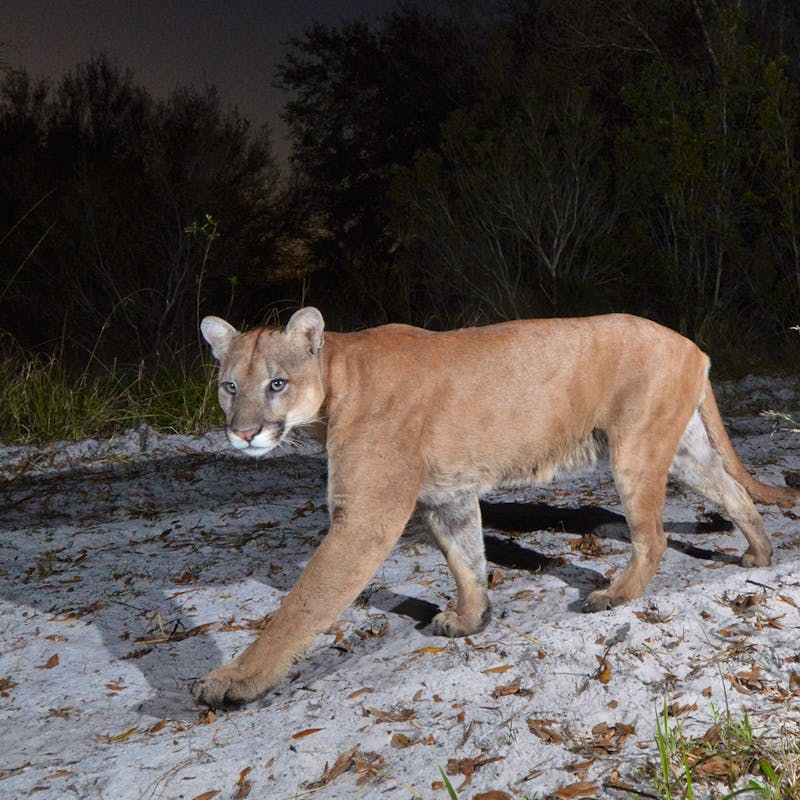A federal court ruled in favor of environmental groups today, determining that the Environmental Protection Agency (EPA) and the U.S. Fish and Wildlife Service (USFWS) violated federal law when they greenlit Florida’s takeover of the Clean Water Act wetlands permitting program.
“Wetlands are the lifeblood of Florida, comprising a crucial habitat component for the world’s only population of the critically endangered Florida panther and many other imperiled, rare and endemic species, all found within one of the most biologically diverse states in the country," said Elizabeth Fleming, Senior Florida Representative with Defenders of Wildlife. "The court’s ruling restores essential guardrails provided by the Endangered Species Act. Requiring agencies to follow the law is a win for wildlife, protecting habitat and the public alike, as protecting our wetlands also safeguards drinking water and ecosystems across the state. ”
Finding that the agencies created an end-run around the Endangered Species Act, the court struck down Florida’s program for reviewing the impacts that wetland permits have on imperiled species. Under the court’s new order, EPA, Florida, and those seeking permits to impact wetlands must use Endangered Species Act provisions to ensure that threatened and endangered species are protected in Clean Water Act permitting.
“Today’s ruling sends a clear signal that Congress meant what it said when it passed the Endangered Species Act," said Earthjustice attorney Christina I. Reichert. “No state can be allowed to take over a federal program as important as the Clean Water Act’s wetlands permitting program by making an end-run around the Endangered Species Act.”
Seven environmental groups, represented by Earthjustice, sued the EPA in January 2021 in U.S. District Court for the District of Columbia challenging the transfer of federal wetland permitting authority to Florida, warning that the handover from the Trump administration to Florida’s DeSantis administration would “degrade and ruin Florida’s natural landscape, all in violation of federal environmental laws.” The organizations that filed the suit are the Center for Biological Diversity, Defenders of Wildlife, the Sierra Club, the Conservancy of Southwest Florida, the Florida Wildlife Federation, Miami Waterkeeper, and St. Johns Riverkeeper.
The court’s ruling today resolves part of the lawsuit that concerns the federal agencies’ failure to comply with the Endangered Species Act. The remainder of the suit, which concerns violations of the Clean Water Act and the Administrative Procedure Act, is still ongoing.
In December 2023, Earthjustice requested a preliminary injunction on behalf of two of the plaintiffs, the Center for Biological Diversity and the Sierra Club, as Florida was poised to issue state permits for sprawl development projects that would have caused irreparable harm to Florida panthers and imperiled crested caracara birds. The projects are planned for a key wetlands area and critical wildlife corridor where an estimated 120 to 230 endangered panthers remain in their last territory on Earth.
The U.S. Fish and Wildlife Service estimated that together, the projects would kill between 7 and 26 panthers each year from vehicular collisions. Another three panthers per year would be harmed by the extensive habitat loss. These projects are among several large developments planned in the wetland areas and panther habitat of eastern Collier and Lee counties, near the Florida Panther National Wildlife Refuge.
Rather than rule on the request for a preliminary injunction, the court ruled in favor of the environmental groups on the underlying claims.
“We’re talking about the destruction of some of the last remaining habitat for one of the most endangered animals in the world,” said Earthjustice attorney Bonnie Malloy. “Restoring the Endangered Species Act protections will ensure that these projects get the analysis and review Congress intended to protect threatened and endangered species.”
Tania Galloni, Managing Attorney for the Florida office of Earthjustice, added: “Protecting the nation’s biodiversity has never been more important. That’s why we’re fighting to make sure state programs comply with all federal protections for endangered species.”
The environmental groups issued the following statements:
Elise Bennett, Florida and Caribbean director at the Center for Biological Diversity:
“The court’s ruling is a reprieve for Florida’s most endangered species like the Florida panther, but we’ll never prevent the extinction of our most vulnerable wildlife unless we stop bulldozing the wild places where they live. The Endangered Species Act can save these magnificent creatures but only if our agencies follow the law. We’ll continue to fight sprawling developments that rip apart the precious wetlands and interconnected natural spaces that Florida’s most imperiled wildlife need to survive.”
Rhonda Roff, Sierra Club Calusa Group Conservation Chair and resident of the Big Cypress Seminole Indian Reservation:
"When agencies entrusted with protecting critically endangered species, like our beloved state animal, the Florida panther, do their job, they protect much more than that animal. By preserving the habitat, including precious wetlands, they protect water quality, air quality, recreational open space, and even a more stable climate for humans as well."
Amber Crooks, Environmental Policy Manager with Conservancy of Southwest Florida:
“The Conservancy of Southwest Florida has been working to protect our wetland ecosystems and endangered wildlife of the Western Everglades for 60 years. We are thankful that this ruling will reestablish the foundational laws that help us protect this unique and critical landscape.”
St. Johns Riverkeeper Lisa Rinaman:
“St Johns Riverkeeper is pleased the court recognized that Florida can’t ignore the law when it comes to endangered species protection. Whenever the state reviews permits from people who want permission to impact our critical wetland ecosystems, they need to follow the Endangered Species Act and the Clean Water Act. ”
Sarah Gledhill, President and CEO, Florida Wildlife Federation:
“Today's ruling reinforces the vital importance of upholding the Endangered Species Act. By holding agencies accountable, we ensure that Florida cannot sidestep federal law in pursuit of environmental shortcuts. This victory stands as a beacon for the protection of our state's wildlife, signaling that compliance with the ESA is non-negotiable.”
Dr. Rachel Silverstein, Miami Waterkeeper:
"Today's ruling restores protections for Florida's invaluable natural resources. Our wetlands are crucial to our state, and we must protect them to protect our future."
For over 75 years, Defenders of Wildlife has remained dedicated to protecting all native animals and plants in their natural communities. With a nationwide network of nearly 2.1 million members and supporters, Defenders of Wildlife is a leading advocate for innovative solutions to safeguard our wildlife for generations to come. To learn more, please visit https://defenders.org/newsroom or follow us on X @Defenders.
News

Ocelot Conservation Day Returns to the RGV







